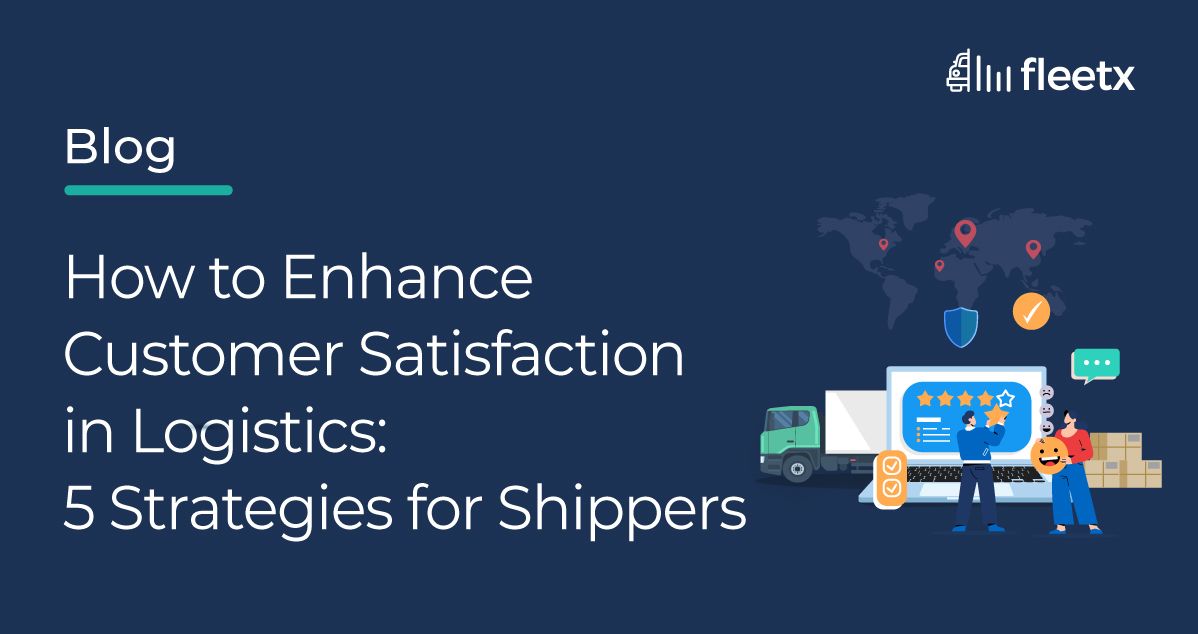
In the fast-moving landscape of the retail industry, the efficient movement of goods is essential for smooth operations. However, with the ever-growing demand for fast, accurate, and cost-effective deliveries, the logistics sector in India faces significant challenges. To address said challenges, retailers are turning in greater numbers than ever before to smart technology solutions. This has helped businesses streamline their fleet management processes, improve efficiency, and meet consumer expectations.
Understanding these challenges is the first step for businesses to strategize and overcome obstacles effectively. Join us as we identify the 7 major logistics challenges facing the retail industry and how smart solutions are changing the game.
The Challenge
The retail industry's logistics space is filled with obstacles that can prevent smooth operations. Here are seven significant hurdles that logistics in the retail sector often confront:
1. Inventory Management and Stockouts:
Maintaining optimal inventory levels while avoiding stockouts is a balancing act for retailers. Overstocking leads to increased costs, while stockouts result in dissatisfied customers. Efficient inventory management, real-time tracking, and predictive analytics are crucial to strike the right balance.
The Smart Solution: Just-In-Time inventory management focuses on stocking inventory only as needed, minimizing excess inventory and reducing the risk of stockouts. This method relies on accurate demand forecasting and streamlined supply chain processes to deliver goods precisely when they are needed, thereby eliminating the need for excessive stockpiling. Integrating real-time data and historical patterns, businesses can optimize inventory levels, reducing excess stock while ensuring availability.
2. Demand Forecasting and Seasonal Peaks:
Predicting consumer demand accurately, especially during seasonal peaks or sudden market fluctuations, is a persistent challenge. Retailers must employ advanced analytics and historical data to forecast demand, prevent over/understocking, and ensure timely delivery.
The Smart Solution: AI-driven predictive analytics and machine learning models can effectively forecast demand patterns, enabling retailers to proactively adjust inventory levels to match fluctuations, reducing the risk of stockouts or overstocking.
3. Rising Fuel Costs and Environmental Concerns:
Fluctuating fuel prices impact transportation costs, affecting the overall logistics expenses. Coupled with environmental concerns, there is a growing need for eco-friendly transportation solutions and the optimization of routes to reduce emissions.
The Smart Solution: Employing telematics and eco-friendly vehicles combined with route optimization software minimizes fuel consumption. By utilizing alternate energy sources and efficient routes, businesses can reduce their carbon footprint and operational costs.
4. Supply Chain Visibility and Transparency:
Lack of transparency and visibility across the supply chain can lead to inefficiencies, delays, and mismanagement. Implementing robust technology solutions that offer real-time tracking, end-to-end visibility, and data-driven insights is crucial for seamless operations.
The Smart Solution: RFID technology uses electromagnetic fields to automatically identify and track tags attached to objects. Integrating RFID tags into inventory items allows for real-time tracking and monitoring of the entire supply chain process. These tags can be scanned remotely, enabling businesses and other stakeholders to trace the movement of goods throughout the supply chain.
5. Efficient Warehousing and Distribution:
Optimizing warehouse operations and distribution processes is a challenge, especially with the need for speed, accuracy, and reduced errors. Utilizing technology like automation, robotics, and AI can enhance efficiency and productivity.
The Smart Solution: Smart warehousing solutions like Warehouse Management Systems are designed to optimize and manage warehouse operations. It helps streamline the movement and storage of goods within the warehouse, improving overall efficiency and accuracy. WMS coordinates various tasks, such as inventory management, order picking, packing, and shipping, utilizing advanced technologies and automation.
6. Compliance and Regulatory Challenges:
Navigating through a web of complex regulations, varying compliance standards, and trade barriers often hampers logistics operations of different scales. Staying updated with changing regulations and ensuring compliance is critical for uninterrupted operations.
The Smart Solution: Compliance management systems provide real-time updates on changing regulations and help retailers ensure adherence to diverse standards. These systems can automate documentation, customs procedures, and trade compliance checks, minimizing the risk of compliance-related delays and penalties.
7. Last-Mile Delivery: The last-mile delivery, known as the final leg of the delivery process, poses considerable challenges. It involves reaching the end consumer's doorstep efficiently and swiftly. This stage demands optimized routes, on-time deliveries, and often faces issues with traffic congestion, unstructured addresses, and specific delivery time preferences.
The Smart Solution: Implementing route optimization software integrated with GPS tracking and AI-powered algorithms can streamline last-mile deliveries. Smart technologies enable efficient route planning, real-time tracking, and dynamic rerouting based on traffic conditions.
To Wrap Up
In the fiercely competitive retail industry, the challenges in logistics can be formidable. However, with the integration of smart technology solutions for fleet management, these hurdles can be effectively tackled. By understanding the pain points and implementing the right tools, businesses can not only overcome these challenges but also transform them into opportunities for growth and success in the ever-evolving retail landscape.


